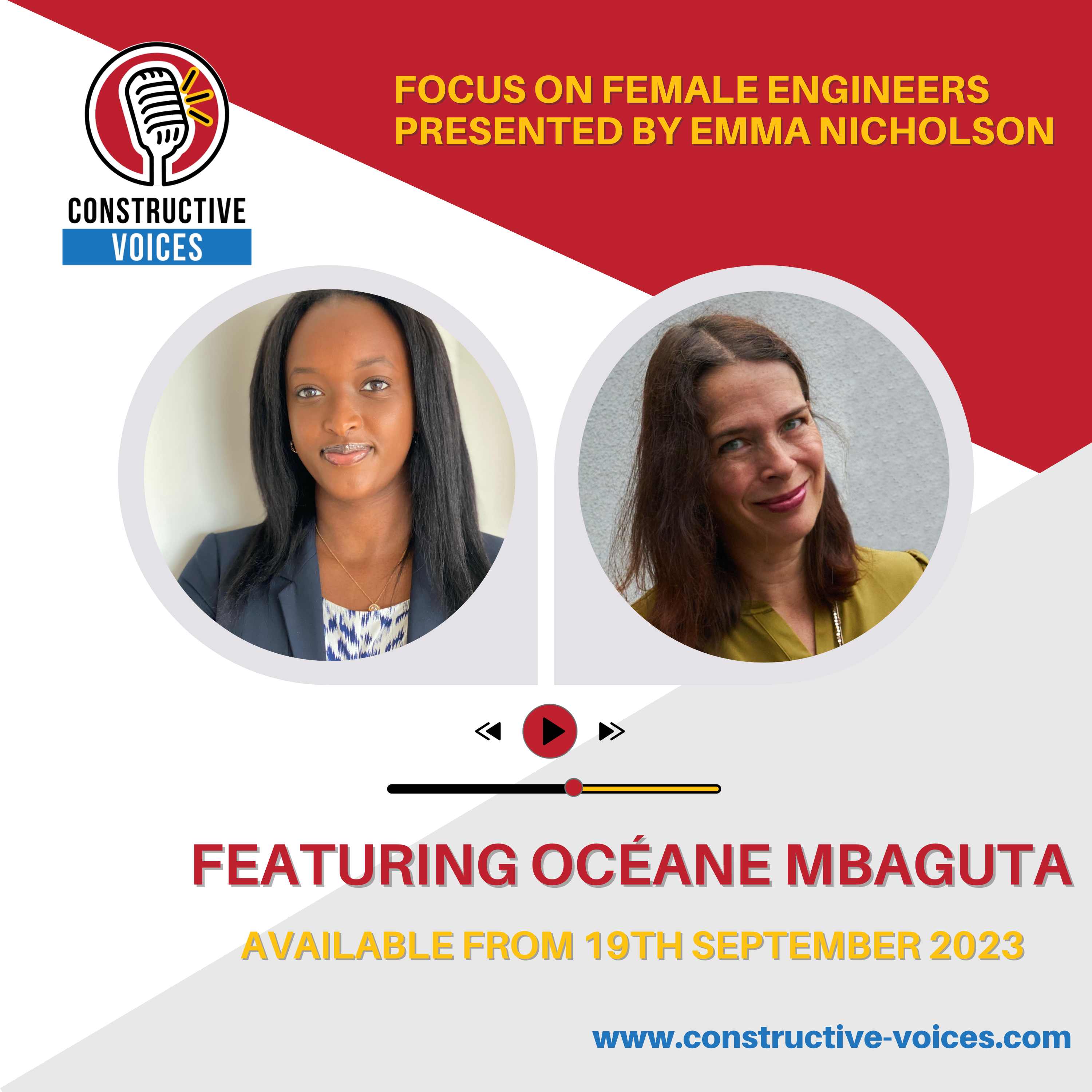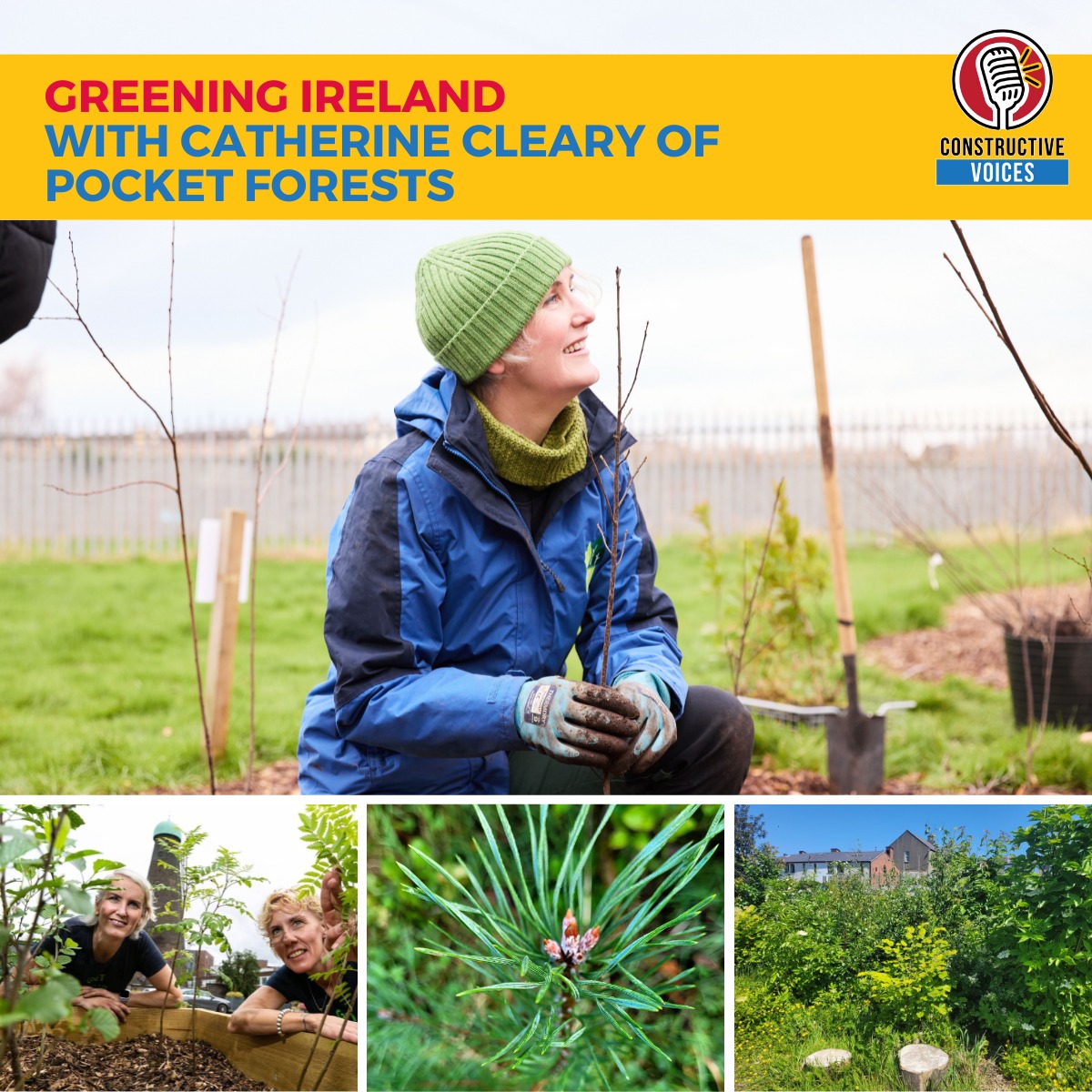[00:00:03] Speaker A: Challenging times call for exciting initiatives.
[00:00:06] Speaker B: This is constructive voices.
[00:00:09] Speaker A: Neil Maxwell, who has worked in the construction industry for more than 30 years, co founded the non profit changing streams in 2018 after a life changing trip to the Arctic. Now, in 2024, Neil Maxwell, his team and partners, the University of Liverpool, are launching changing materials. Tune into Neil now to hear all about changing materials, an exciting initiative that aims to promote sustainable materials while breaking down silos.
[00:00:37] Speaker C: During our conversations with people, we're always asked the question, well, if not plastic, what can we use? The second or equal question is, how much extra is it? You know, that's always the barrier. Interestingly, I spoke to a chap in the Netherlands this morning and his comment on that was, cost isn't a barrier, it's availability of better materials. It's a barrier. There's just not enough stuff out there. So I thought, well, that's, that's useful because we've been developing a quite a comprehensive list of plastic free, low plastic and recycled plastic, more sustainable products for the industry, because we want to have this information when people ask. And we thought, well, that's great, but on an Excel spreadsheet, it's raw data, it's not easy to navigate. So we've been out for funding for some time to try and put the tech behind that and build a new website.
So the University of Liverpool have, just, after six months of fundraising, not getting anywhere because it's hard.
The University of Liverpool have just fully backed it, so they're going to fully fund this. So we're now in the process of building a brand new platform of material database which will be available open source. We're going to call that change in materials and it's shining a light on predominantly on natural materials.
It'll be categorized in terms of internal, external roofs, floors, linings, interiors, etcetera. But it'll also be the manufacturers will be set out in three different sectors or stages, if you like.
Stage one will be startup, stage idea phase. I've got some risk canvas. I'd like to develop a building block of it. I'm doing some work with Exeter University, maybe, and I'd like to try get this in the mainstream. So that's of interest. But it's not available yet. But it just shows you what's being done. Stage two are those materials, mycelium, miscanthus, hemp, elephant grass, etcetera. Those things that are now have been developed, are proved, tried and tested and certificated and are currently available, but it's fairly new, so they're only available in small quantities. Don't forget we speak to people like Morgan, Sindel, Mace Arup, Wilmot Dixon, and you know, they say, well, great book and we have lots of it. And sometimes you can't because it's just a brand new product or a brand new solution. And it's stage three is those products that are bio based materials that are available mainstream and you know, you can get as much of it as you like, try and test its certificates approved and you can get as much of it as you like. So the thing is, the more we get of stuff like that, the price will come down. So this will address the price barrier. I remember leds coming in when I was in business because of my fit out business. They were three or four times more expensive than traditional light fittings and we spoke to clients about having them because they 60% less cost to run and they lasted ten years, so what's not to like? And landlords then weren't really bothered because their priority was profit. Their priority was making sure the customers kept tight, so they weren't interested in taking those things up. We'll fast forward where we are now today. Leds are much cheaper than standard fittings now and they still get the benefits of 60% less to run and ten years guarantees. So this will happen with natural materials. We've seen it with paint, lead based paint, moving away from lead based paint. We're moving towards mineral paints now.
Mineral paints are an exciting space because there's a lot of companies doing some great stuff out there with mineral paints that act the same way as plasticized paints. So the majority of them are more expensive, therefore it's still a barrier. But the more we do of those sorts of things, the more we buy of that, the price will come down. So these are the changes that we need to try and drive. So this material database is really exciting. It'll be, as I say, it'll be a website, it'll be free. What manufacturers to come to us, because what we've done is a desktop search for those materials. We're still doing it now. We've got about 100 5200 lines, so not a great deal of stuff at the moment, but we're building on that and we want manufacturers and developers and people that are developing new ideas and innovative solutions to come to us and say, hey, I've got something. Can I put it on this on your website? Of course you can, it's free. Why wouldn't we? So people that want to use it, it's aimed at architects, designers, specifics, etcetera. And hopefully it will help them. It will help give them better choices. They may not always use it, they may not always find it useful, but it will give them an option somewhere else to go to give some, an alternative.
[00:05:50] Speaker B: Absolutely, Neil. And it's irresistible not to end on the obvious point about changing materials and changing streams, but certainly with changing materials, surely that's going to be a really interesting platform for investors to keep an eye on.
[00:06:06] Speaker C: Of course, yeah, that's another good reason. Because part of our community, as I mentioned before, the community, it's all interlinked and this is what we want to do. Everything that we're doing is interconnected. Everybody's got an opportunity, cross fertilize and share the stuff. So with the community, we'll have investors in there and people and finance banks, we hope, that want to get involved. We'll dine a light on some of the products that we're putting on the new changing materials website and talk about that in our community. And hopefully it will flag up opportunities for investors where they might see stage one idea stage and think that's a good idea. I'd like to fund that. And those companies in startup phase might very and often are looking for funding. So there's matchmaking again, matching the investor with the opportunity, with the developer and the innovator to try and come together to drive that transition. The more we can get of this, the better. We want to encourage people to come out of their silos. Everyone I speak to Barb, virtually none. They all operate in their own ways, in their own silos, and they all do great work. There's no disputing that, most of them, but they're all operating in silos. What we want to encourage is that open communication, that open community where everybody can get involved and talk to different disciplines to understand why things might not be done that they expect to be done in a way that they expect it to be done, and share ideas, share solutions, find new innovative opportunities.
[00:07:41] Speaker A: Changing materials is now online and can be
[email protected] if your organization wish to share stories, case studies, spotlight your team members and produce training clips, go to constructive dash voices.com stories.
[00:08:01] Speaker B: This is constructive voices.


